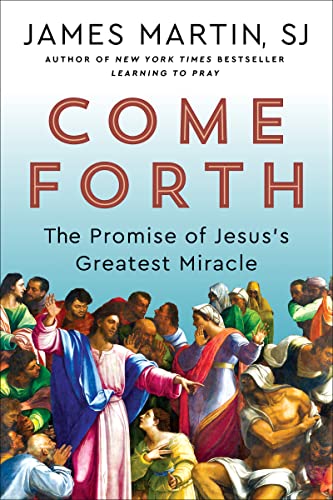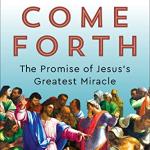Q. It has always struck me that the only fully adequate confessions of Christ’s being part of the divine identity in the 4th Gospel are the one in the prologue in John 1, and the confession of Thomas ‘my Lord and my God’ after Jesus has written. All these other confessions like Martha’s, ‘I believe you are the Messiah….’ are true but inadequate. Jesus doesn’t merely cause resurrection and life, he is the resurrection and life, and Martha doesn’t understand that. So I would say we have both a crescendo of confessions climaxing with Thomas, just as we have a crescendo of signs, a sort of can you top this, with the healing of a man born blind in John 9 (something never recorded in the OT) and the raising of Lazarus, being the two most stupendous miracles. When you have reflected on the progression of these things in the Gospels, with the ministry miracles climaxing in John 11, what have you made of this deliberate patterning?
A. Your comment reminds me of something that my eighth-grade English teacher once said to me. I asked a question about a motif in a Thomas Hardy novel and said, “Do you think that Hardy intended that?” And she said, “If you noticed it, he intended it!” So my sense is that this is a deliberate pattern in John where the signs get greater and greater and people’s understanding of who Jesus is gets greater and greater. In a sense, it mirrors the story of the blind man, who gradually “sees” while those around him don’t.
Also, it’s notable that when someone says in John, “I know…” or “I see…” they often don’t know and don’t see, or at least don’t know or see fully. Some scholars say that Martha’s profession, “I believe that you are the Messiah,” is her great confession of faith, on par with Peter’s confession of Jesus at Caesarea Philippi as “the Messiah, the Son of God.” But Jesus is much more than she believes. He is much more than Jewish ideas of the Messiah. And he is not just someone who gives life, he is, as you say, life itself. In this way, Martha is all of us: believing but not fully getting it. Though ultimately, she will, and ultimately we will.













